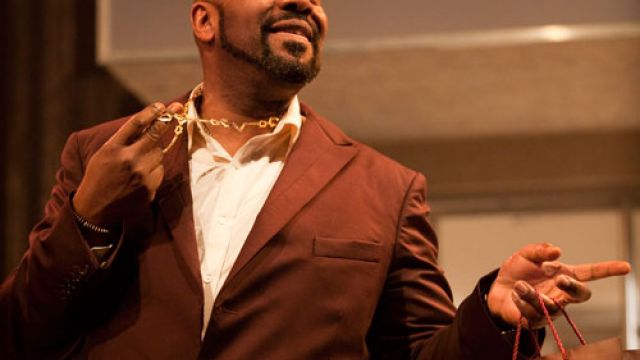The Comedy of Errors
Theatre is accustomed to shape-shifting. For centuries theatre pieces of varying genre, length and culture have often found themselves in the midst of a new form. William Shakespeare has copped it most, due to the dead-fifty-years-and-we-get-your-art-for-free rule.
Shakespeare’s 38 plays have been translated into every major living language and are performed more often than those of any other playwright. More than 420 feature-length film and TV versions of his plays have been produced, making Shakespeare the most popular screenwriter in Hollywood. Some are faithful to the original story and text, while others are loose adaptations.
Due to knowing all this, I wasn’t surprised to be invited to a screening of his hilarious, “The Comedy of Errors” at the Nova Cinema in Carlton. Will this film be a modern-day Baz Luhrmann-style remake? Will the language remain intact? Will the characters be true to the original work?
Indeed a piece of art was shown on a cinema screen. There was a plot, characters, sets, costumes, music, sound and visual effects. But this was not a film: it was a screening of the play direct from London’s stage. And on the March 24 and March 25, it would be a live HD broadcast across the country.
The plot is well known: two sets of identical twins separated at birth, Antipholus of Syracuse and Antipholus of Ephesus, and their Dromios (servants), collide in the same city – without meeting - for one crazy day. Multiple cases of mistaken identity assure hilarity and absurdity on a grand scale.
However the play retains a serious side: there is crime, betrayal, deception, adultery, a clear caste-system, and more than one character stares their mortality in the face. The play starts in a place of darkness, and whilst the gags proffer laughs, they never totally distract from the serious stuff.
No wonder, in a preceding interview, the director described the work as, “[an exploration] of what happens when you lose connection with who you really are”.
Directed by Dominic Cooke, and starring comedian Lenny Henry as Antipholus of Syracuse, the production was slick. The sets had the luxury of height – up to three storeys. The “London” city block (in which this play was based) sat atop a Lazy Susan. Lights were sharp, a band entertained during transitions, comedic gags were crowd-pleasers, and the show’s running time (2.5 hours, including an interval) was appropriate.
Indeed the National Theatre production was a delight. But rather than review the production I’d like to use this space to comment on the means in which I saw it.
Theatre is an interactive experience. The audience feels the actors’ energy, and visa versa. It is exciting, and performances can be varied depending on responses.
In a traditional theatre, the audience sits in the “fourth wall”. In the National’s Olivier Theatre, this was the case. In Carlton, Melbourne, we were – and felt - removed.
It was a surreal experience. Who just laughed? Was it someone from our audience or someone from theirs? Did we just miss an amusing gag from a character in the background? How did they change that set? Our vision was impaired by the cameraman and vision switcher, who only showed us what they want us to see.
There is less accountability in a filmed theatre performance. Actors can slip up and the camera can be pointed elsewhere. Sets can be cracked which the human eye would notice, but not necessarily the camera eye. Performances can be quite subdued for theatre but come across appropriately on screen.
But most importantly, walking away from a theatre performance one often feels they’ve been taken on a journey. Film can provide the same effect, but theatre as film? Trickier. For they’re two completely separate forms smooshed together, probably only for the purposes of money.
Still, this way Australian (and American, Canadian, Kiwi, South African, Mexican,Indian, Scandinavian and European) audiences can enjoy the wonderful work that’s coming out of Britain. And wonderful it was, in performance, direction and stagecraft. Definitely worth seeing, if nothing but for this unique experience.
National Theatre Live, in conjunction with Sharmill Films and Aviva, is being screened at cinemas around Victoria. For a full list of ticket information for each cinema, visit www.ntlive.info.
Tammy Shmerling
Subscribe to our E-Newsletter, buy our latest print edition or find a Performing Arts book at Book Nook.

